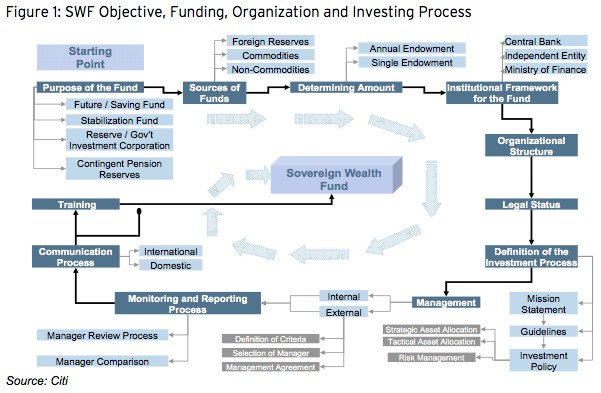Hedging bets Dutch pension funds rethink hedge fund allocation
Post on: 16 Март, 2015 No Comment

Benelux
S hould pension funds invest in hedge funds? When the second-largest Dutch pension fund, PFZW. announced its intention to liquidate its hedge fund portfolio, the question became pressing.
If, the argument goes, a pension fund as large and resource-rich as PFZW decides to exit hedge funds, there may be valid reasons for smaller funds to re-think their allocation.
PFZW, which manages €156bn of assets, said its decision was due to cost, sustainability and complexity. The fund specified that hedge funds would no longer be a “strategic investment category”. The fund for the healthcare sector was the first among peers to buy into hedge funds in 2003. However, it was not the first to divest.
Last year, cost concerns led PMT. the €52bn industry-wide scheme for metal workers to start offloading its €1bn portfolio. PME. another metal industry pension fund with €35bn in assets, cited high costs and unattractive returns as reasons for its divestment.
According to Dutch National Bank (DNB), hedge fund allocations amongst pension funds have fallen from 3.7% in 2009 to 2.7% in 2014.
The fact that PFZW decided to divest was relevant given that the fund had gone to great lengths to develop an innovative hedge fund investment programme only four years ago. it employed PGGM, the pension asset manager whose main client is PFZW and Paris-based based Lyxor Asset Management to build a managed account platform.
The Institutional Managed Account Platform (IMAP) allowed PGGM to assume operational liability on behalf of its clients, which in turn made it possible to negotiate lower fees with hedge fund managers. PGGM is now considering selling its managed account platform, having been approached by parties since PFZW’s announcement.
• A number of large Dutch institutional have divested from their hedge funds.
• ABP. the largest pension fund, continues using hedge fund managers through APG. its asset management subsidiary.
• Hedge fund replication strategies may be the answer to cost and transparency concerns.
Although PFZW will no longer use hedge fund managers, evidence indicates that it may continue to implement hedge fund-style strategies, using passive managers. PGGM has previously said that it was considering adding hedge fund replication programmes to the platform. While a number of contracts with different service providers are already on the platform, it was built as a “plug-and-operate” system. Substituting hedge fund strategies with ones that involve systematic alternative risk premia may be the best response to the pressures exerted by the industry.
The DNB, the pension fund regulator, has made it tougher to invest in complex strategies, like hedge funds. Over the past years, it has increased its requirements for transparency, cost control and board expertise to a point where traditional hedge fund investments can no longer be sustained, at least for smaller pension funds. At the same time, calls for transparency and cost reduction are coming from pension fund members. To them, hedge funds are difficult to justify.
However APG, the €343bn Dutch asset manager owned by the public sector pension fund ABP, has given no signal that it will scale down its hedge fund investments, which are managed through a dedicated fund of fund manager, New Holland Capital. In 2013, APG’s hedge fund portfolio recorded a net return of 6.19% against management costs of 4.36%.

Ronald Wuijster, CIO at APG, says the manager is happy with its hedge fund programme adding that APG will achieve “equity returns at risk levels that are comparable to fixed income”. The hedge fund portfolio, he says, has shown little correlation with the portfolio.
Despite the results, Wuijster expresses reservations: “We are recording good results. Relatively speaking our fees are low. But, the absolute level is still something we worry about. Total costs are a question mark for all pension funds.”
Clearly, a successful hedge fund programme will depend on overall risk and return characteristics plus the costs – notably, PFZW cited costs as a reason for its divestment. But scale is also a factor, and few have the resources that APG has to pay for a dedicated external manager and adviser. However, parliamentary questions from 2008 about APG’s relationship with New Holland Capital suggest that this is a sensitive area and APG discloses few if any details about its external hedge fund manager.
Still, the industry is divided about hedge funds. Most agree that some hedge funds can justify their fees. At the same time, it is clear that finding those has become difficult, and that implementing the investments requires massive efforts. It is hard to say which way the pendulum will swing. But PFZW’s decision illustrates that there is an impulse to get hedge fund managers to reconsider business models and fee structures.
Marc Van Heel, managing director at BlackRock in Amsterdam, believes funds like PFZW could team up, perhaps even with foreign peers, and actively drive the debate, which could prompt hedge fund managers to react. “In the Netherlands, there is a very strong focus on costs,” he says. “But, other aspects of the debate have been buried under the snow. One is that in the asset management industry, alpha is hard to find. Those who can find alpha will charge higher fees for it. If investors were only focused on lower costs they would only buy passive instruments but following an index or being active long-short in equities is a different skill and the cost of active management is quite substantial but could deliver what investors are looking for.”
But the debate need not be deadlocked forever. PGGM’s former head of hedge funds, Jan Soerensen, believes that there will a “sharp separation between true alpha hedge funds and those who only offer beta” will emerge, and that the hedge funds that can only separate beta will lose out. Indeed, Soerensen left last year to set up his own business, Tang Financial, which will focus on hedge-fund replication strategies.
Given the increasing focus of pension funds on risk premia, and the fact that Dutch pension funds have a long-standing preference for passive strategies, it is likely that funds will focus more strongly on alternative risk premia and alternative beta strategies in the future, in the hope they will deliver many of the diversification and return benefits of hedge funds.














